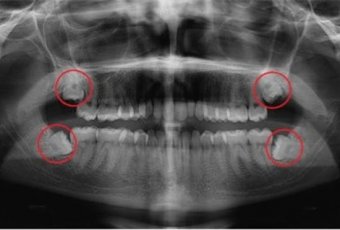Yes that is right you can be addicted to sugar just like drugs and alcohol. Sugar is everywhere and in almost every store bought packaged food and drink. It is easily a forgotten nasty that has an effect on your total health and wellbeing. Many people consume more then there daily intake of sugars without even realising. The World Health Organisation recommends the average daily intake of free sugar for an adult should be reduced to less than 10% of their total energy intake. They say we should be trying to limit our sugar consumption to 6 teaspoons a day. Free sugars include all sugars added to food and drinks as well as natural sugars in fruit etc.
An Australian Heath survey done in 2011-2012 found that Australians where consuming around about 60g of sugars each day which is equivalent of 13 teaspoons of sugar. You may think it would be hard to eat that much sugar in a day but if you didn’t already know your average soft drink these days can have up to 10 teaspoons of sugar in them alone.
Sugar Effects on Health and wellbeing
Sugar can play a major role in our total wellbeing. People whom consume too much junk food or food with a high sugar content may experience things like fatigue, headaches from withdrawal, bad skin/acne, low energy levels, weight gain/obesity, increased stress, dental caries and some more serious health issues such as heart disease, liver disease and diabetes. Ways in which we can reduce our sugar intake can be by making simple food swaps. These can be as simple as swapping flavoured yoghurt to natural, or a snack bar to a handful of nuts. Your local GP or Dentist may also have some helpful tips / swaps to help reduce your daily intake of sugar.
Sugars effects on Teeth
The deferent types of Bacteria in your mouth form together to create plaque which then uses the energy from the sugar to multiply and grow bigger and faster creating tooth decay. Some Bacteria may turn the sugar into a thick sticky type glue that sticks to the tooth surface which makes it harder for your saliva to wash it away naturally. Making you very reliable / depended on brushing to make sure your teeth are clean. Children and adolescent teens are at higher risk of tooth decay so it is very important to have a healthy balanced diet and practicing good oral hygiene by brushing and having regular check-ups at your dentist.
Brushing your teeth on the regular
Brushing is very important in preventing decay especially in children, it is recommended that you brush your teeth at least two times a day, the best times to do this would be once in the morning after breakfast and again before bed. The more the better, it can be beneficially if you brush after every main meal when possible. Making sure we are brushing for the whole 2 minutes in circular motions, making sure we are brushing the whole tooth surface including where the tooth meets the gums top and bottom. It is important not to brush to hard as this May causing gum irritation/ damage. Your Dentist will be able to demonstrate how to correctly brush your teeth and may have some helpful tips with brushing your child’s teeth as well.
Visiting the Dentist
Visiting the dentist for your regular check-up is another way to prevent and stay on top of any tooth decay and oral health issues. With regular scale and cleans and examinations the Dentist can help reduce and prevent the risk of tooth decay by ensuring your teeth are in good condition. They can set up a treatment plan and lead you down the right path for better oral health.



